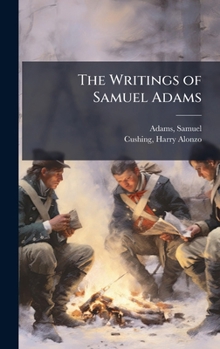The Writings of Samuel Adams
"The Writings of Samuel Adams" offers a comprehensive collection of the works of one of the most influential figures in American history. Samuel Adams (1722-1803) was a leading voice in the American Revolution, advocating for colonial rights and independence from British rule. This compilation, edited by Harry Alonzo Cushing, presents a rich array of Adams' essays, letters, and public documents, providing invaluable insights into the political thought and revolutionary fervor of the period.
Readers will find a deep understanding of the philosophical underpinnings of the American Revolution and the strategies employed by Adams and his contemporaries to mobilize public opinion. This collection showcases Adams' profound commitment to liberty and self-governance, making it an essential resource for historians, students, and anyone interested in the founding of the United States. His writings remain relevant today, offering enduring lessons on civic engagement and the importance of vigilance in preserving democratic ideals.
This work has been selected by scholars as being culturally important, and is part of the knowledge base of civilization as we know it. This work was reproduced from the original artifact, and remains as true to the original work as possible. Therefore, you will see the original copyright references, library stamps (as most of these works have been housed in our most important libraries around the world), and other notations in the work.
This work is in the public domain in the United States of America, and possibly other nations. Within the United States, you may freely copy and distribute this work, as no entity (individual or corporate) has a copyright on the body of the work.
As a reproduction of a historical artifact, this work may contain missing or blurred pages, poor pictures, errant marks, etc. Scholars believe, and we concur, that this work is important enough to be preserved, reproduced, and made generally available to the public. We appreciate your support of the preservation process, and thank you for being an important part of keeping this knowledge alive and relevant.





